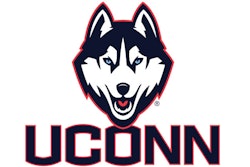|
Copyright 2013 Woodward Communications, Inc. All Rights Reserved Telegraph Herald (Dubuque, IA) |
|
October 30, 2013 Wednesday
|
|
A; Pg. 4
|
|
624 words
|
| Wisconsin should weigh nickname issue carefully |
|
the TH Editorial Board
|
|
where we stand Requiring complainants to prove discrimination is a reversal that goes too far. The State of Wisconsin could be treading on thin ice in November if it moves forward with legislation making it harder to pressure schools to get rid of nicknames considered racially offensive. We understand that sometimes political correctness carries things too far. But this pendulum is swinging too far back in the other direction. Surely that is not where the state wants to go in this day and age. Two years ago, the state adopted a law that allows people to file complaints with the state Department of Public Instruction over race-based mascots and team names. The complaints lead to hearings, and school leaders have to show that the team names and mascots do not promote discrimination or stereotyping. The change in law would shift the burden of proof, so the person filing the complaint would have to prove discrimination. Further, complaints would only be considered if the complainant gathers enough signatures to equal 10 percent of the student population of the district. So in a school district the size of Dubuque Community Schools, 1,000 signatures would be required before the state would even hear the complaint. That's a pretty steep requirement to have a possibly discriminatory practice taken into consideration. What if the same standard were required to correct other injustices - like demanding compliance with the Americans with Disabilities Act? It would hardly seem fair. Review of the original law is fair game - not every nickname with an Indian reference is racist. Here in the tri-state area, teams like the Belmont Braves, the Lancaster Flying Arrows, the Potosi Chieftains and the Prairie du Chien Blackhawks are more a reflection of the region's history. But those schools must take care not to use terms or images that could be considered discriminatory or insensitive. Officials need to look beyond just the nicknames to how the team name is portrayed in logos and mascots. That should be the goal: Making sure logos and mascots aren't perpetuating racial stereotypes, not weeding out every nickname that has roots in the area's American Indian history. Some schools go beyond that standard - like the Mukwonago Area School District, where the nickname "Indians" is symbolized in its mascot as an Indian in full warbonnet headdress, and, until last summer, the gym wall announced, "This is Indian country." Those kinds of logos and sayings reduce Native Americans to caricatures and stereotypes. The name Mukwonago means "home of the bear" in Potawatomi. It would seem "Bears" might be a worthy mascot, befitting the town's heritage. But if the proposed change in law happens, pressure to change the nickname and logo will be removed. Often a voice of reason on contentious issues, Sen. Dale Schultz, R-Richland Center, offered an alternative to reversal of the current law. Schultz suggests the Department of Public Instruction review team names annually. School districts in question would then have to take public comment and decide whether to keep their names. Decisions by the school board could be appealed to an administrative law judge and then circuit court. Whether or not his plan wins support in the Senate, Schultz is taking the right approach. When an issue is contentious and split down party lines as this one is, it takes the effort of compromise to find common ground. When the risk of perpetuating discriminatory practices is at stake, it's worth the effort to compromise. It isn't that every nickname with Indian roots is inherently racist. But the State of Wisconsin shouldn't make it so difficult to change the ones that are. Editorials reflect the consensus of the Telegraph Herald Editorial Board. |
|
October 30, 2013
|
Terms and Conditions Privacy Policy



































